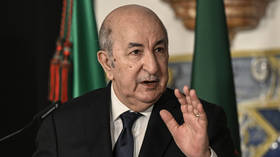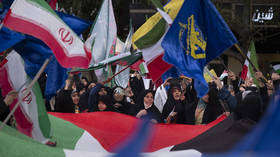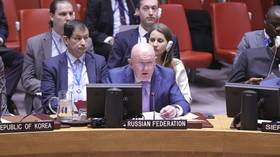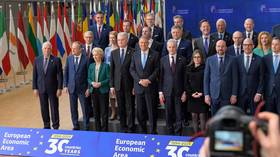African state warns France over territorial dispute

Algeria has condemned France for an alleged decision to explicitly endorse a contentious Moroccan autonomy plan for Western Sahara, calling the “ill-timed” move a reprise of colonial rule in the disputed territory.
The North African nation’s foreign ministry said on Thursday that Paris had only recently informed the Algerian government about its stance in favor of Rabat.
Morocco annexed Western Sahara 50 years ago, a former Spanish colony with just over 550,000 people. Around 80% of the territory is under Moroccan administration, with the remainder controlled by the Sahrawi Arab Democratic Republic (SADR), which is recognized by 46 of 193 UN member states.
The annexation has been a source of regional tension and a decades-long conflict between Rabat and the Polisario Front, an Algerian-backed group seeking self-determination for the Sahrawi people. The Polisario Front fought a 15-year war for independence until a fragile UN-brokered ceasefire in 1991. The UN proposed a referendum to decide the region’s fate, but disagreements over who is eligible to vote have stalled the process, resulting in a return to hostilities since 2020.
Algeria regards Rabat’s presence in the sparsely populated region as an occupation, leading to strained relations between the two African states.
Morocco submitted its autonomy plan for Western Sahara to the UN Security Council in April 2007. According to the proposal, Rabat intends to delegate administrative, legislative, and judicial powers to local residents while keeping the Moroccan flag and currency. Morocco would also be responsible for the region’s foreign policy, security, and defense.
The Sahrawi nationalist movement rejected the plan. The US, along with its ally Israel, has officially recognized Moroccan sovereignty over Western Sahara and welcomed the framework as credible and realistic.
In May, a group of British lawmakers described Rabat’s proposal as a “pragmatic approach,” advising the UK government to follow the example of its “main allies,” including France, and recognize Moroccan sovereignty over the phosphate-rich region.
France has yet to publicly endorse Morocco’s proposal, but it has faced repeated accusations from Saharan authorities of violating international law through various actions, including an alleged plan to finance projects in a Rabat-controlled area. The allegations came after former French ambassador to Algeria Xavier Driencourt reportedly signaled in April that Paris was preparing to formally acknowledge Morocco’s Saharan territorial claims.
In its statement on Thursday, Algeria said it noted the French decision with “great regret,” saying it contradicts UN efforts toward a political settlement between the conflicting parties. Algiers said the “counterproductive resolution… [in] no way serves the goals of peace in Western Sahara,” and that it would hold Paris “alone” accountable. The French government has yet to comment.













